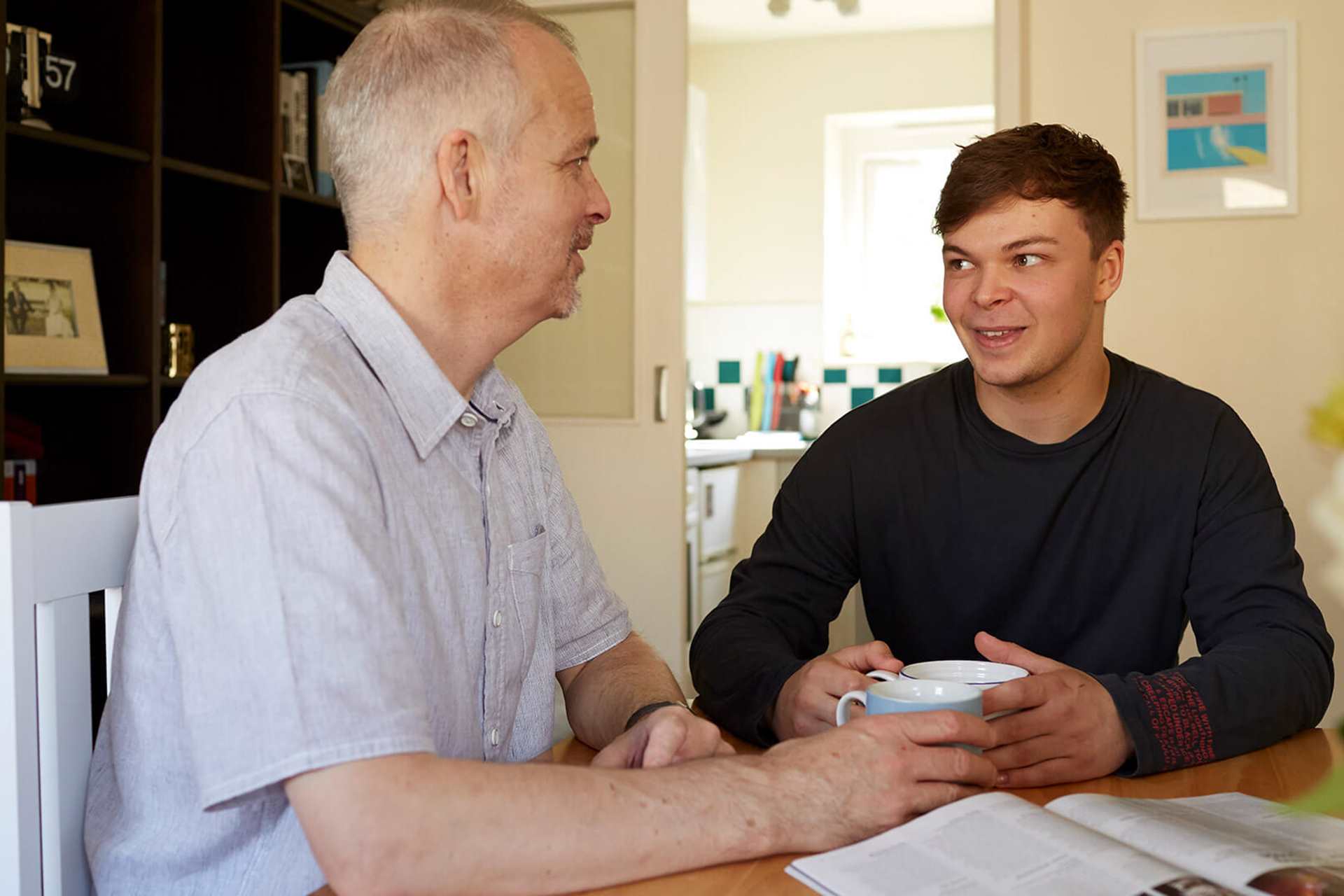Topics mentioned: self-care, alone and misunderstood, down and unable to cope
About: Rachel, 25, explains what brain fog feels like for her, why it makes everyday tasks so difficult, and shares her self-care tips for brain fog symptoms.
It’s like an emergency signal from my brain telling me that I’m overwhelmed.
What is brain fog?
Brain fog is where you feel confused and struggle to concentrate, remember, think clearly or put your thoughts into words. When I first started experiencing brain fog, it was quite scary as I remember suddenly feeling unable to cope and not knowing if it was going to get better.
What causes brain fog?
In my experience, brain fog mostly follows periods of stress or not sleeping properly. I guess it’s a way of my body telling me I’ve been trying to do too much. The problem is that sometimes the things I have to do aren’t optional.
It’s like an emergency signal from my brain telling me that I’m overwhelmed. Unfortunately, by the time I get these signals, it’s usually too late to manage the underlying cause.
Most of the time it is just incredibly frustrating, like there is a bouncer in my head blocking my thoughts as I try to think and do things. I feel locked in my head like a zombie or some kind of external observer.
What does brain fog feel like?
Brain fog can feel really disorientating and make me feel pretty low. Most of the time it is just incredibly frustrating, like there is a bouncer in my head blocking my thoughts as I try to think and do things. I feel locked in my head like a zombie or some kind of external observer. I also feel panicky and unprotected, especially if brain fog strikes at a point where I have something urgent to do.
It feels like someone has pulled the emergency brake in my head and my whole thought process has gone into slow motion while the world keeps moving around me. It feels exposing as I know I can’t react quickly enough to situations, and I feel exhausted by the extra energy it takes to do things I wouldn’t usually have to think about. Even my daily routine becomes uncertain and a conscious effort.
This is made worse by the fact that brain fog makes it so hard to put my jumbled thoughts into words so that I can ask for help. It’s like there is an extra weight attached to each thought. Making it to the end of any thought thread is an act of determination. I will spend hours just staring at a blank computer screen trying to think of any words to type.
Brain fog can feel frustrating and isolating, but you can get through it by being gentle and kind to yourself. It won’t last forever.
Tips for taking care of yourself
It’s hard to deal with these phases of brain fog, but it’s no use getting angry with yourself. Brain fog can feel frustrating and isolating, but you can get through it by being gentle and kind to yourself. It won’t last forever.
-
Rest is productive
I’ve come to realise that some days I just have to accept that I won’t be able to get through my to-do list and that’s okay. Fretting and getting nowhere with a question or task will just increase my stress. Sometimes you just have to cut your losses, listen to the emergency brakes, rest and reset.
-
Change your environment
Another thing that I’ve found helpful is getting outside and going for a run. Something about the rhythm and cold air feels as if it loosens the blockages in my brain. But you can try getting outside and/or moving in any way that works for you. Even just looking out of the window or closing your eyes for a few minutes can be enough to break a thought pattern.
-
Write things down
If I’m really struggling to get things done, I try to write things out more. This helps me feel more in control rather than having a running agenda in my head when I’m struggling to remember things. I also look at tasks and see what low-effort parts I could maybe get done until I feel better.
-
Give yourself more time
Another tip is to allow more time for everyday tasks, such as making food. I know this takes me longer when I have brain fog. That way, you won’t create more opportunities to get frustrated with yourself and can take however long you need.
More information and advice
We have tips and advice to help you find the support you need. Take a look at our guides.
Where to get help
However you're feeling, there are people who can help you if you are struggling. Here are some services that can support you.
-
CALM (Campaign Against Living Miserably)
Provides support to anyone aged 16+ who is feeling down and needs to talk or find information.
Free webchat service available.
Read information about the helpline and how it works.
- Opening times:
- 5pm - midnight, 365 days a year
-
Childline
If you’re under 19 you can confidentially call, chat online or email about any problem big or small.
Sign up for a free Childline locker (real name or email address not needed) to use their free 1-2-1 counsellor chat and email support service.
Can provide a BSL interpreter if you are deaf or hearing-impaired.
Hosts online message boards where you can share your experiences, have fun and get support from other young people in similar situations.
- Opening times:
- 24/7






